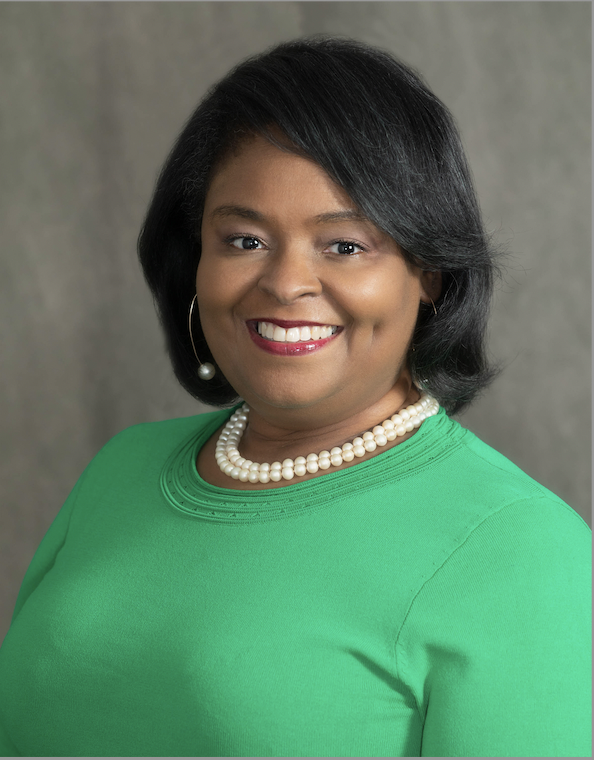
Black Belt Community Foundation (BBCF) was established to strengthen Alabama’s 12 poorest counties collectively known as the Black Belt. In the last 19 years, fueled by the passion to provide opportunities to the region, BBCF has partnered with philanthropic organizations who want to invest in local community led driven transformation. BBCF is also a member of the Initiative to Accelerate Charitable Giving. We recently spoke with BBCF President Felecia Lucky about how reforms in charitable giving could advance BBCF’s important work in the community.
IACG: Tell us about the important work that the Black Belt Community Foundation is doing and the importance of the foundation’s regional focus?
Felecia Lucky: As we are approaching our 20th anniversary, BBCF is proud of the impactful work that has been done side by side with the community. Serving as the administrator for the federally-funded Head Start program in four Black Belt counties, supporting 307 children and their families, just begins to tell story of the work of BBCF.
BBCF continues its work in providing annual funding support to community organizations and arts organizations through its grants programming as well. We have been active across almost every facet of community life. Our racial equity work and commitment to implementing the Truth, Racial Healing & Transformation framework in Selma, and our role as a founding member of the Southern Black Girls and Women’s Consortium, are real standouts.
When we talk about “regional focus,” we are mindful of our responsibility to our region and our commitment to service for all of it. Being the official 2020 federal Census taking organization for our region and figuring out how to operate successfully during the flashpoint days of the pandemic is a great example.
Since the tragedy of tornado destruction visiting our region on January 12, 2023, we have prioritized raising relief resources through two different disaster relief funds and working across five counties affected. Our regional storm shelter work in four of our twelve service counties so far is noteworthy. We began that work even before the tornadoes of Jan. 12, and we will be expanding this work to our eight other service counties so that all counties are protected from natural disasters.
IACG: Looking ahead, what kind of work does BBCF want to do more of?
Felecia Lucky: The recent pandemic years further exposed and amplified issues and “cracks” in our already-strained, inequitable systems. Our work in long-term food sustainability across the region and expanded funding and infrastructure implementation for broadband internet access for all are some of the initiatives on the forefront now that can bear fruit for the immediate future. For example, we are already working hard across all of our Head Start school facilities on the broadband front, and even food growing and nutrition management skills are part of our curriculum for these early learners at our schools. We have a 2023 goal to position our volunteer network of BBCF Community Associates (CAs) (now approx. 100 strong) to be stronger advocates of change. The CA’s work across all 12 of our service counties, and they are active in areas that directly affect our communities such as lack of broadband, rural hospital closings, disparity and inequity of health care services, reform for sales tax on groceries, and food insecurity, to name a few. We will be organizing at a higher level of advocacy moving forward.
IACG: As a foundation working to directly support your surrounding communities, what has been your experience with structural issues that slow money getting from the broader philanthropic sector into the hands of charities?
Felecia Lucky: Historically, big philanthropy has tended to focus on large grants to urban-based organizations reaching more dense population centers and the difficulties of getting those organizations to look “outside the box” and reach deeper across rural, more scattered communities such as our Black Belt is consistently a challenge.
Some organizations are simply not comfortable giving money to us if we are then re-gifting the money to other organizations, but what we need donors to know is that the organizations we work with are the ones truly doing the work on what the community itself has voiced that it needs. We often stand in the gap for smaller organizations that don’t qualify for larger grants due to their limited budgets or organizational size. These organizations are the heart and soul of community philanthropy and are doing transformational work that deserves and demands our support!
IACG: How can charitable tax reforms advance racial equity in philanthropy sector?
Felecia Lucky: BBCF was enthusiastic to join up with the Initiative to Accelerate Charitable Giving. We feel that these tax reforms will put all non-profit charitable organizations on a better footing. By addressing outdated provisions that were not created from the beginning with racial equity as a core value, that alone is a big move forward. Increased access to funding would allow us to add additional resources across our programs to work with more communities and people, and therefore, by default, advance racial equity and extend access to resources.
Racial equity, diversity and inclusion are all core tenets for BBCF. We strive to ensure that everyone has access to all resources (and to a larger pool of resources). If racial equity is interwoven and advanced through this process, then organizations like BBCF will have greater access to those resources, much of which is not currently accessible to us. The reforms do not benefit us unless racial equity is advanced, and the lens of social justice is consistently applied.
Unfortunately, many organizations sit atop huge amounts of money that could be better put into action if it flows more quickly into community where it is needed.

